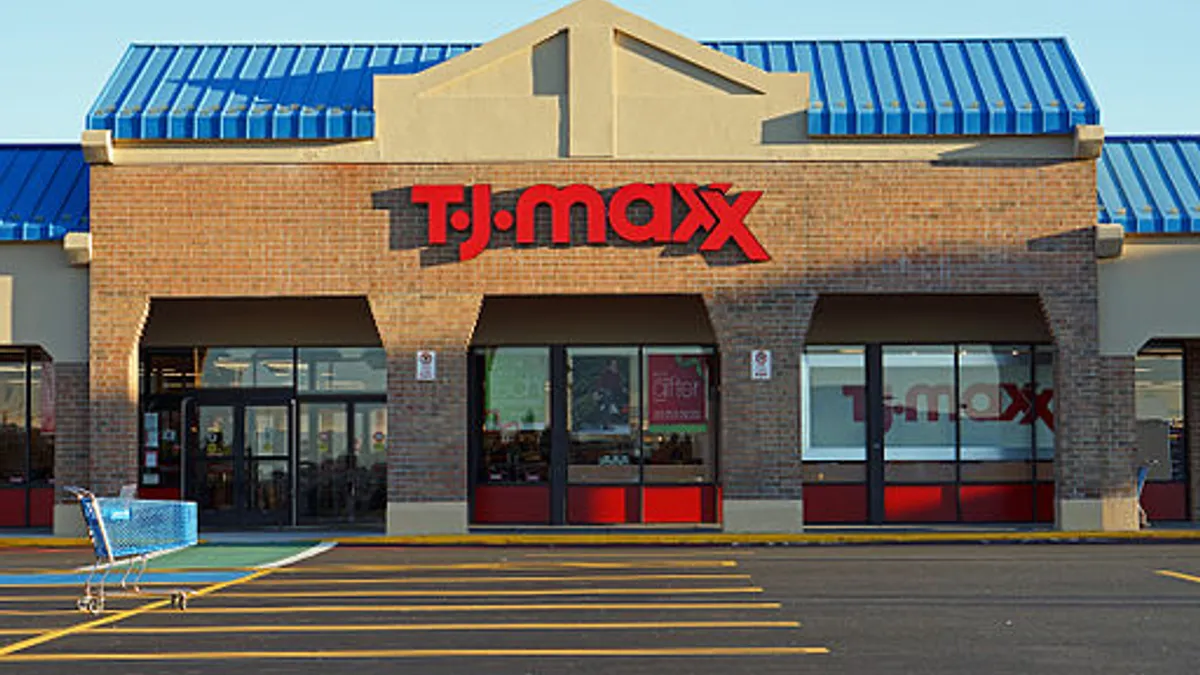Dive Brief:
-
TJX Cos. Inc., parent of T.J. Maxx, and Kohl’s Department Stores are the latest retailers facing lawsuits related to their pricing policies. J.C. Penney is facing a similar suit filed last month.
-
Two T.J. Maxx shoppers in California say they believed the retailer’s claims about the difference between the discounted price and the “original” department store price, but later found that the “original” price was just T.J. Maxx’s “estimation.” The suit has been proposed as a class action.
-
Meanwhile, Kohl’s similarly (but not quite exactly) faces a putative class action, also in California, over false advertising that the plaintiffs say misled shoppers about sales. The suit alleges that the retailer never charged the original prices, which it calls “fictitious.”
Dive Insight:
Human beings seem unable to resist a bargain, and retailers seem unable to resist tempting shoppers with them.
The trouble is when those bargains are fashioned from original prices that are somehow not quite true. In T.J. Maxx’s case, the retailer is under fire because its “compare to” prices are a product of its staff’s imaginations. In Kohl’s case, the retailer is accused of never charging what it does put on its tags. Both are ways to beef up the size of the bargain in some way, and boost that psychologically wonderful sense of getting a deal.
T.J. Maxx is actually pretty up front about its policy, posting on its website:
What do we mean by "compare at"?
The "compare at" price is our buying staff's estimate of the regular, retail price at which a comparable item in finer catalogs, specialty or department stores may have been sold. We buy products from thousands of vendors worldwide, so the item may not be offered by other retailers at the "compare at" price at any particular time or location. We encourage you to do your own comparison shopping as another way to see what great value we offer. We stand for bringing you and your family exceptional value every day – it’s the foundation of our business.
Fair enough. Still, that the retailer is actively suggesting a “compare to” price in the first place lays the foundation for possibly inflated suggestions. Kohl’s doesn’t have quite the same up-front disclaimer anywhere.
It could be time for retailers to revisit this practice. Customers hate being duped even more than they love a bargain. And regulators hate it, too, when things go too far.
Beyond that, there’s another psychology increasingly prevalent among consumers—perhaps thanks to such practices—the expectation of low prices. The comparison, deceptive or not, may help push the sale. But so do basement prices. Retailers may increasingly find that they can’t get away with boosting prices as consumers become conditioned to expect discounts and sales all the time.
There could be another way to be even more up front than T.J. Maxx about what things might cost in the real world. Or it could be time to start selling on value rather than on discount.















